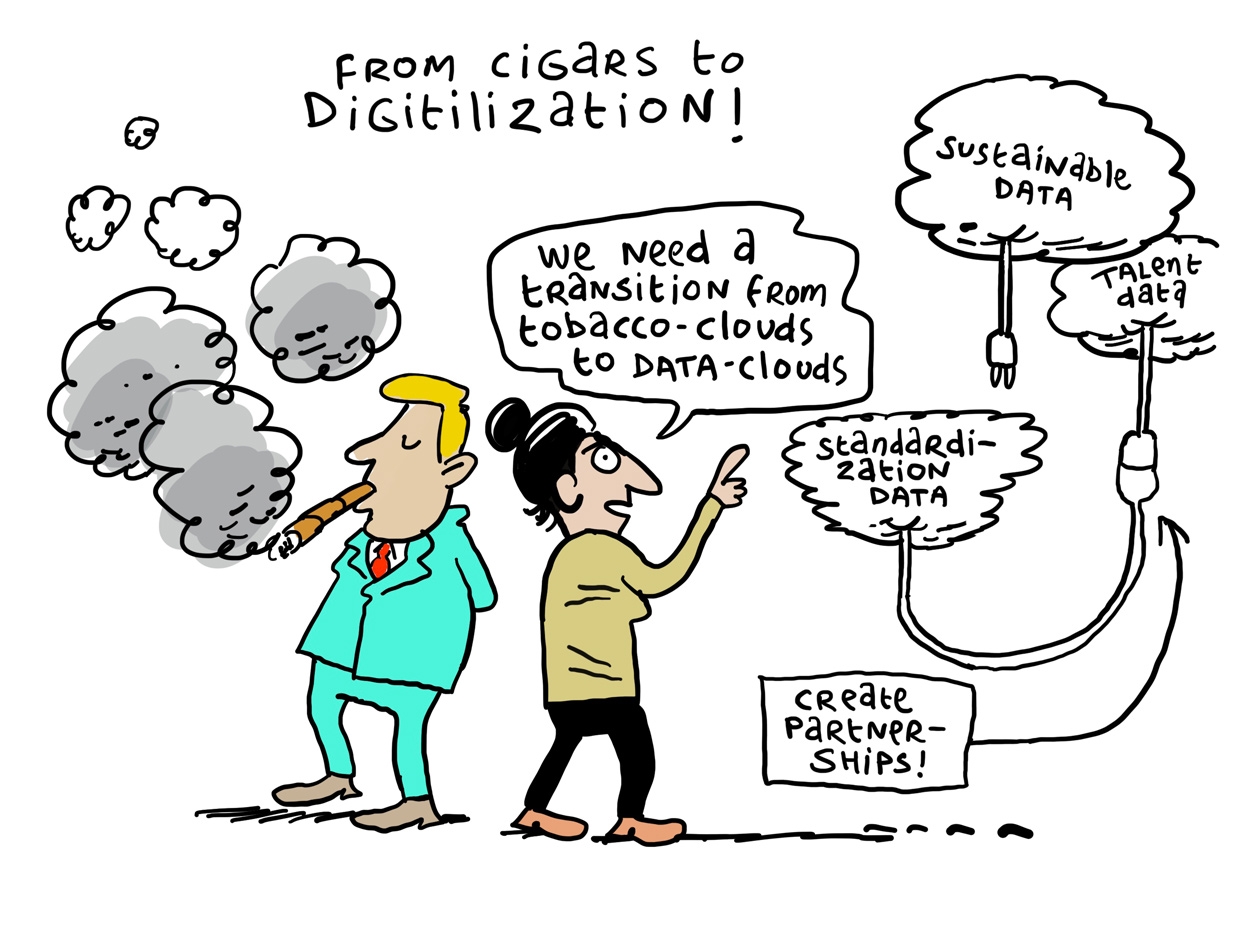Forward towards Industry 4.0: how to digitally transform your business step by step

Forward towards Industry 4.0: how to digitally transform your business step by step
As a company, the road to digital transformation sometimes seems endless and littered with obstacles. Biba Visnjicki of the Tembo Group therefore gave concrete advice at the Symposium on how to make step-by-step progress. She did not limit herself to the technological domain, but also showed how to get your people fully on board for the necessary radical changes.
The Tembo Group (formerly ITM Group) of technology companies has been around since 1912, with a Dutch tobacco company as its cradle. Meanwhile, it contains 18 companies in 10 countries. "Our philosophy of bringing these different businesses together has a clear digital backbone," Biba Visnjicki, head of digitalisation at Tembo Group, told IANS. "Digital transformation helps us ensure that there is effective interaction between the various parts, which can thus form an integrated whole."
To clarify what digital transformation stands for, Visnjicki referred to the world of motorsport Formula 1. "In the 1960s, British champion John Surtees was still driving around in a car without digital support, so he was unmistakably the main person responsible for the car's performance." Some 40 years later, German rekordmeister Michael Schumacher could count on firmly improved car and cockpit hardware. He received a constant stream of information via his dashboard and assistance from control systems.
"Max Verstappen, the most recent world champion, now gets even more extensive digital support from his team and has the advantage of an extremely user-friendly information feed," Visnjicki continued. "There is a digital twin of his bolide, which allows the performance of that car to be fine-tuned much better. So the technology in F1 has gone through a whole digital metamorphosis." Similarly, companies need to invest in the transition to Industry 4.0 if they want to remain competitive in the global market.

Partnerships with researchers and companies
To remain on top of the latest developments, the Tembo group collaborates with four universities - in the Netherlands, Luxembourg and Germany. The technology group also set up its own innovation centre. "This is how we gather the necessary knowledge so that as an 'old' group, with a long history, we can at the same time stay young and keep up with the latest trends."
Visnjicki also presented the group's broad digitalisation strategy. This has four goals: create more value for customers, improve organisational efficiency, enable new business models and drive innovation. To achieve these, investments are needed in four areas: production systems, digital infrastructure and tools, a skills development programme, and finally also in the group's talent and network.
"When improving production systems, it is relatively easy to develop a plan of action to update your machines, but it is already more complicated to work on, for example, your agility as a company and your flexibility in the face of changing customer requirements," she stated. "It is therefore a good idea to establish collaborations with research institutions, but also with other companies." Tembo group thus set up a partnership with technology group Siemens, in addition to its general partnership with universities, for a specific challenge.
Gradually accelerating
In terms of technology updates, Visnjicki advocated focusing in a global sense on three general guidelines: standardisation, integration and the creation of an ecosystem. More concretely, it is important to focus on sustainability, robustness, reconfigurability, interconnectivity and autonomous technology. Practical components of such a technology strategy include 5G in production, cyber security, predictive maintenance, web-based solutions, data analytics and simulations and modelling.
"This way, you can gradually accelerate your communication flows, fine-tune data exchange, optimise process flow and create ecosystems to serve your customers even better," Visnjicki explained. A smart first step is to do a good screening of where you are now as a company, identifying the pain points, and then move step by step towards digitisation.
Taking people out of their comfort zone
Such a radical transformation obviously costs time and money, but what is often overlooked is that it also requires a major adjustment in the human domain. "The complexity of this process by no means lies only in the technological domain. You can make a difference as a company by addressing issues related to employee cooperation."
What exactly are such challenges? Visnjicki listed quite a few: lack of transparency, fragmented communication, long decision-making processes, opportunism, fear-driven management, lack of long-term vision and poor use of external sources of innovation in an ecosystem.
"It is also not easy to get people out of their current comfort zone and make them realise that they will have it better in their new comfort zone, and that it will also last longer. It must also be clear that traditional hierarchical systems no longer work," she said. "A more recent challenge concerns fitting data teams effectively so that they help drive the rest of the business correctly."
Leading by example
The digitalisation expert also gave a raft of concrete tips to guide your people as a company towards this essential metamorphosis. "Support your managers in their mission to coach their teams efficiently. Cultivating trust through consistent communication is essential in this regard."
She stressed the importance of creating a context in which it becomes attractive for people to work on their competences, at their own pace. This involves valuing the experience of older workers. "Also make sure your teams become multifunctional, deployable across different departments."
Leaders in companies pressed Visnjicki to lead by example at all times. "Also, keep constantly propagating the overall vision, and the concrete benefits it brings. And above all, stay patient. This is not something you can achieve overnight, and sometimes you will have to take two steps back after three steps forward. But if you have a clear idea of where you want to go, and work systematically towards it, your customers will also follow you on your path towards digitisation."
This keynote was part of Flanders Make's Symposium, the annual event where (inter)national speakers present the technology trends that will shape the future of the industry. The 2022 edition focused on the path to 'a sustainable, digital and competitive industry'.
